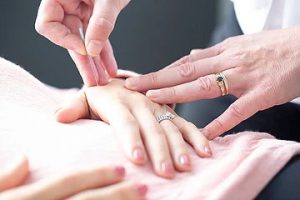Acupuncture is rapidly becoming the treatment of choice for a lot of people. We often get questions about research and which health issues acupuncture can be beneficial for. The World Health Organisation can give us some answers.
The World Health Organisation (WHO) is a specialised agency of the United Nations that is concerned with international public health. They work world wide to promote health and provide billions of people with better health and well-being. The WHO did a review and analysis of reports of controlled clinical trials and they listed a wide variety of diseases or disorders for which acupuncture has been tested and found beneficial. They classified them into several different categories (the below is an extract, find the complete document here):
- Diseases, symptoms or conditions for which acupuncture has been proven— through controlled trials—to be an effective treatment: Adverse reactions to radiotherapy and/or chemotherapy. Allergic rhinitis (including hay fever). Depression. Dysentery, acute bacillary. Dysmenorrhoea, primary. Epigastralgia, acute (in peptic ulcer, acute and chronic gastritis, and gastrospasm). Facial pain (including cranio-mandibular disorders). Headache. Hypertension, essential. Hypotension, primary. Induction of labour. Knee pain. Low back pain. Malposition of fetus, (correction of). Morning sickness. Nausea and vomiting. Neck pain. Pain in dentistry (including TMJ dysfunction). Peri-arthritis of shoulder. Postoperative pain. Rheumatoid arthritis. Sciatica. Sprain. Tennis elbow.
- Diseases, symptoms or conditions for which the therapeutic effect of acupuncture has been shown but for which further proof is needed: Abdominal pain (in acute gastroenteritis or due to gastrointestinal spasm). Acne vulgaris. Alcohol dependence and detoxification. Bell’s palsy. Bronchial asthma. Cancer pain. Cardiac neurosis. Cholecystitis, chronic, with acute exacerbation. Cholelithiasis. Competition stress syndrome. Craniocerebral injury, closed. Diabetes mellitus, non-insulin-dependent. Earache. Epidemic haemorrhagic fever. Epistaxis, simple (without generalized or local disease). Eye pain due to subconjunctival injection. Female infertility. Facial spasm. Female urethral syndrome. Fibromyalgia and fasciitis. Gastrokinetic disturbance. Gouty arthritis. Hepatitis B virus carrier status. Herpes zoster (human (alpha) herpesvirus 3). Hyperlipaemia. Hypo-ovarianism. Insomnia. Labour pain. Lactation, deficiency. Male sexual dysfunction, non-organic. Ménière disease. Neuralgia, post-herpetic. Neurodermatitis. Obesity. Opium, cocaine and heroin dependence. Osteoarthritis. Pain due to endoscopic examination. Pain in thromboangiitis obliterans. Polycystic ovary syndrome (Stein–Leventhal syndrome). Postextubation in children. Postoperative convalescence. Premenstrual syndrome. Prostatitis, chronic. Pruritus. Radicular and pseudoradicular pain syndrome Raynaud syndrome, primary. Recurrent lower urinary-tract infection. Reflex sympathetic dystrophy. Retention of urine, traumatic. Schizophrenia. Sjögren syndrome. Sore throat (including tonsillitis). Spine pain, acute. Stiff neck. Temporomandibular joint dysfunction. Tietze syndrome. Tobacco dependence. Tourette syndrome. Ulcerative colitis, chronic. Urolithiasis. Vascular dementia. Whooping cough (pertussis).

If you want to find out if acupuncture can be helpful for you please get in touch. You can call us on 0414 067 874 or send us an email at marieke@naturalsolutionstcm.com. Alternatively click here to make a booking online.

